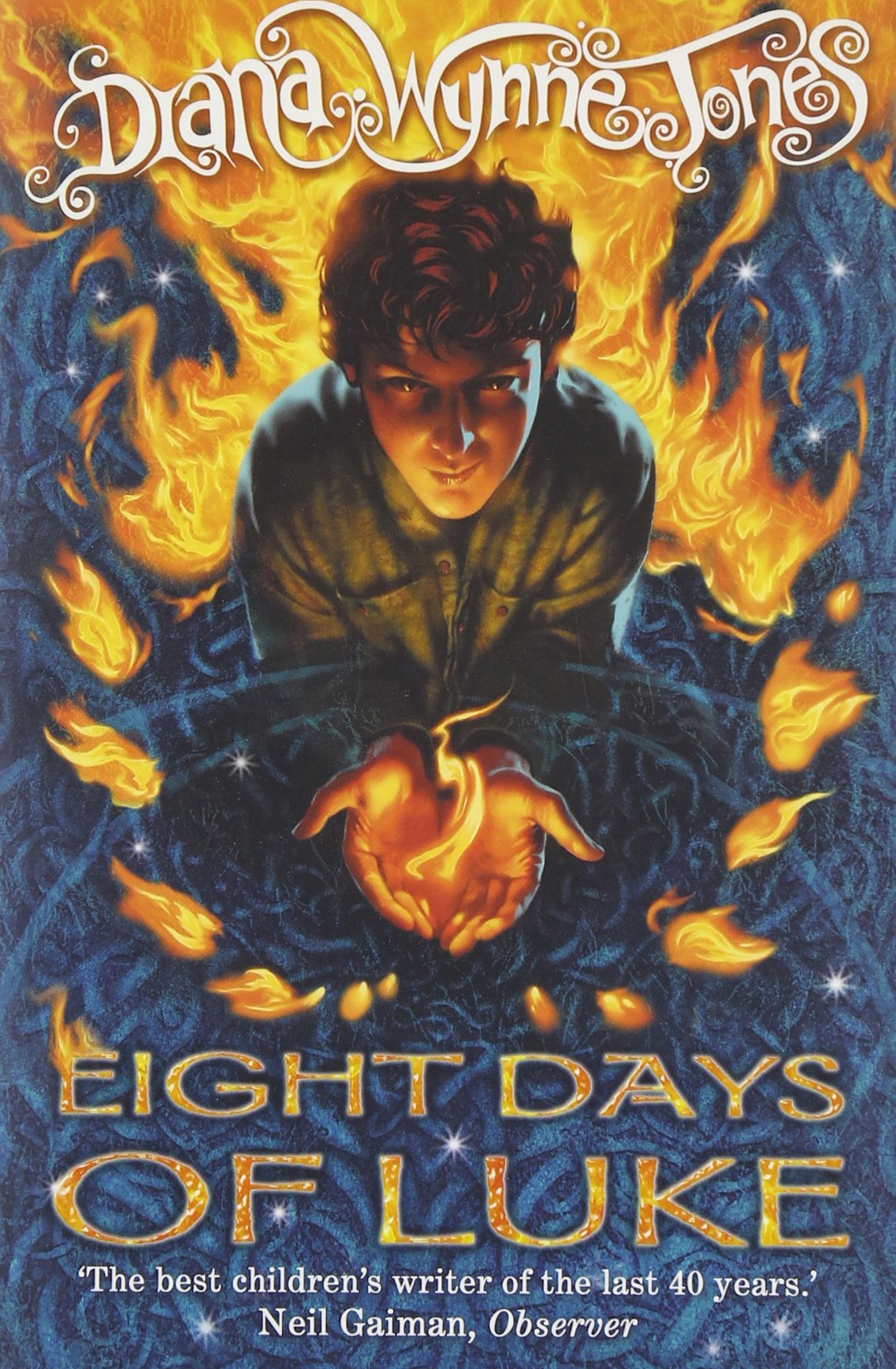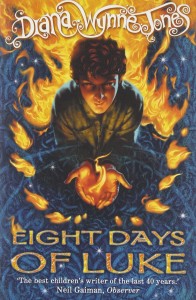Nowadays, I can find awesome books and secondhand book sales, which is why I . bought Eight Days of Luke for only a dollar. It costs a dollar! Amazing! Of course, I think Diana Wynne Jones’ work is worth more than a dollar, and I think she’s a far better fantasy writer than Rowling. (Please don’t get out your pitchforks, Harry Potter fans, we’re allowed to hav opinions, after all.)
I read this midway and finally finished it. And boy, what a short and lovely delight it really is.
David’s home for the holidays and all of his relatives see him as a nuisance. They complain that they have to spend money on him and ignore him when he wants to talk about his interests, like cricket. Eventually, David gets fed up with them and speaks a bad word, summoning this boy, Luke, with the ability to control fire.
Warning: Spoilers below
Soon, David has a new friend and that makes life at home easier as he has someone to confide in him. At the strike of a match, Luke comes, and David plays with him. Like David, Luke also says that his family doesn’t treat him well and they bond over that. But for every day of that week, Luke’s relatives come and get him.
On Tuesday, a man called Mr Chew comes to garden the house, and on Wednesday, Mr Wedding comes. The reader gets the sense that these people are not of this world, and that they have magical powers. It is eventually revealed that Luke is Loki, the Norse trickster god, and that his relatives, Mr Wedding and Mr Chew are Odin and Tyr, also Norse gods, and that they’re after Loki for some of the terrible things he did.
As always Wynne Jones masterfully blends magic into the world, but what is more important is a depiction of a dysfunctional family. Sure, children’s literature is littered with orphans and missing parents, but the portrayal of both Luke’s and David’s families are revolutionary — as one often thinks of families as perfect abodes of shelter and that parental families are be caring and kind, the true danger is not Luke, but rather, David’s odious relatives who damage his emotional well-being every day. Of course, so many people have already pointed out that mythology is full of dysfunctional families and Norse mythology is one of them.
Naturally, there is hope David — he helps Luke retrieve what one of the gods has lost, and because of this, the gods have presumably granted him a boon. His relatives are on the run because they’ve been caught squandering David’s inheritance, and David moves in with Astrid, his only tolerable relative.
In times of darkness, Wynne Jones’ books always give people hope. Young readers with dysfunctional families will identify with David and see a way out. Ultimately, that is what good fiction does — show readers that happy endings are possible, even if the protagonists are in dire situations.

